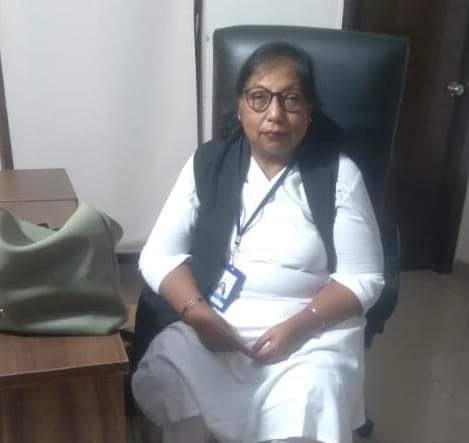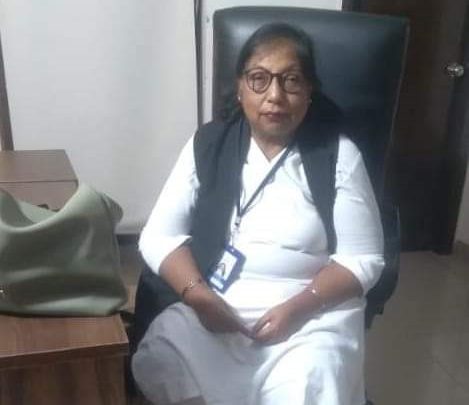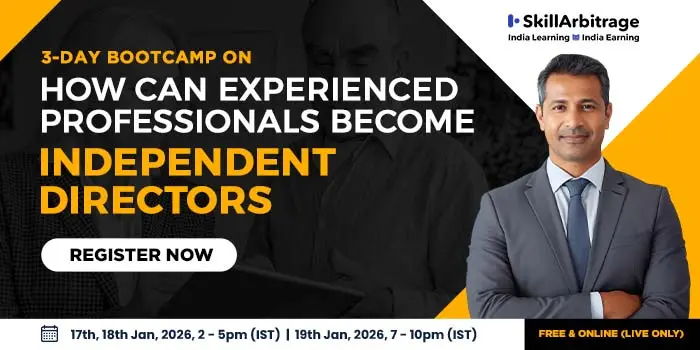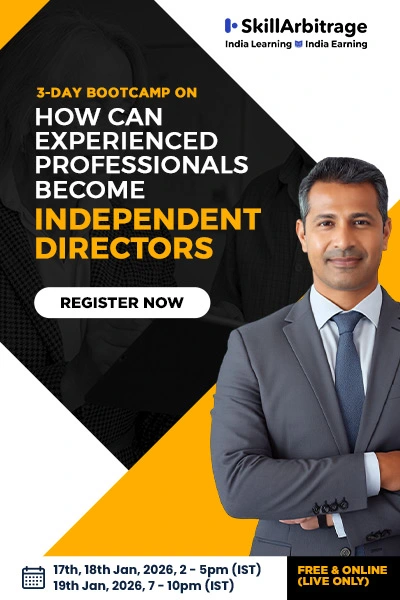AOR
6990
0
0
“The legal profession is not just about earning big money but making citizens aware of their legal rights and protecting them from being exploited,” – Shipra Ghose, Advocate-On-Record at the Supreme Court of India
This interview was taken by SuperLawyer Team
Posted on June 24, 2024
This interview has been published by Namrata Singh and The SuperLawyer Team

You have a distinguished career as an Advocate-on-Record at the Supreme Court of India. Could you share with us how you began your journey in law? And your father, Late Sankar Ghose, was a Senior Advocate at the Supreme Court of India. How did his career influence your decision to enter the legal field, and what lessons did you learn from him?
I was always interested in studying law coming from a family of lawyers. I graduated in Political. Science (Hons ) from Delhi University wherein I studied the Indian Constitution, international relations and other allied subjects and in my third year I had participated in model Parliament organized by the Delhi University and all these factors reinforced my desire to pursue a 3 year LLB course from the Faculty of law, Delhi University (1988 -1991 batch). Thereafter I had wanted to pursue LLM in international law, as my first love was to pursue a career in academia and research however the same didn’t materialize and my father motivated me to join the legal profession as a practicing lawyer. He felt that I had good communication skills. He also emphasized there was ample scope for research while studying a question of law in a case, the lawyers needs to have clear understanding of law, conduct legal research to support the client’s case and stay updated with recent judgements, laws and give his client the most appropriate advice in a particular situation.
After I graduated in Law for a year I worked with M/s Khaitan & Company, Delhi appearing in their Delhi High Court matters ( mostly of Civil nature) and also also drafting related documents and also conducted a few admission/denials. My father always insisted before one finally steps into the Apex Court work one must learn the original side work and conduct trials and master the Code of Civil Procedure .
I joined the legal profession in September 1991 and I passed the Advocate on Record Examination in 1997 in the first attempt. My father was suffering from Prostate cancer from the year 1996 and I lost him in February 1998.
I had an opportunity many a times to work with my father while attending his chamber , I researched on various questions of law and I also drafted notes of Arguments and I learnt from him how to improve upon them and make them more precise. This itself was a great learning experience.
You have been on the panel of the Supreme Court Legal Services Committee, often dealing with criminal and matrimonial matters, and have served as Amicus Curiae. How do these roles contribute to the legal system, and what impact do you believe your work has on the lives of individuals seeking justice? Additionally, what drives your commitment to pro bono work, and how do you choose the cases you take on?
I being a Panel Counsel of the Supreme Court Legal Services Committee ( SCLSC) and Amicus Curiae get an opportunity to provide legal services to the less fortunate people in the society this stems from my belief nobody should be deprived to represent himself or herself through a lawyer irrespective of his or her social status and justice is accessible to all. I also feel by doing pro bono work I am able to give back to society. The legal profession is not just about earning big money but I think we lawyers have a duty to make citizens, the less fortunate ones aware of their legal rights and also protect them from being exploited .
I have dealt with many criminal matters being in the above two panels, in one of my cases the appellant had already undergone more than 21 years incarceration and I had prayed he should be released on sympathetical considerations. The Apex Court observed since the appellant has undergone such a long period in custody, he may apply for remission as per the policy of the Government in vogue and further directed that even in case, the appellant was not able to make any application for remission, the State was obliged to consider this aspect in accordance with the policy of the State. The Apex Court dismissed the Appeal with the above observations(Criminal Appeal No(s). 1681/2013 PANKA VIZ PANKU(s) VERSUS THE STATE OF CHHATTISGARH decided on 08. 05.2024). I feel the above observations would be a great help to the accused. In certain criminal matters
I also had an opportunity to work on matrimonial matters and civil matters bring on the panel of SCLSC panel ,I had an opportunity to draft many transfer petitions for wifes and got their matrimonial matters transferred from one state to another ,these days in some cases the wives are working and well paced , it was not easy to get their matter transferred but one has to convince the Court that the wife is facing genuine difficulties only then one succeeds in getting a transfer.
I have represented a few clients before the Supreme Court Mediation Cell where some cases involving matrimonial disputes, and other civil disputes were referred to Mediation Cell by the Judges of Apex Court wherein we the lawyers from both sides had an opportunity to make the parties sit under one platform under the guidance of mediators and impressed upon them that where a child was involved in the well being of their child they should live together, were we failed to convince the parties to live together, the mediator‘s impressed upon them that instead of filing contentious cases against each other they should resolves all their disputes and part amicably. In some cases the meditators was able to prevent custody battles amongst parents and worked out a shared custody of the child and sharing of expenses for the child, in some cases where the wife was not working, the meditators worked out a lump sum alimony for the wife and child and visitation rights for the father of the child. I feel we lawyers should always give the correct and appropriate advice to our clients and if there is a possibility of out of court settlement we should encourage the same as that it would be beneficial for the client, our legal system, save costs and not unnecessarily prolong litigation.
What do you consider the most important qualities and skills that a successful lawyer should possess today? What advice would you give to the new generation of lawyers to help them excel in the field of law? Are there any specific skills or strategies you believe are essential for success in today’s legal landscape?
To be a successful lawyer one must possess excellent communication skills, analytical skills, argue with persuasiveness before the Court of Law, which can be learned and developed by appearing in various cases and watching and observing seniors argue cases. A lawyer should not always take the paths of the precedents but should be creative and possess the ability to think out of the box to reach the best possible solution.
I feel a newcomer after law school if he opts for litigation, he should either join a lawyer with 10-15 years of experience who has a lot of work, or with a government lawyer, or litigation law firm. I also advice law students during their five year law course to do varied internships like work with a NGO, work with a litigation law firm or corporate law field (whichever field they wish to choose) and make informed career choices.
In today’s time Lawyers have to stay updated with all legal developments, changes in law and be techno savvy.
Given your broad experience across different legal areas, how do you incorporate interdisciplinary approaches in your cases, especially in complex matters that intersect with economics, sociology, or technology? And how do you manage to stay updated and proficient in such diverse fields of law?
My broad expertise developed through years of studying and practicing law across different domains. I was also an empanelled ‘B’ counsel of Union of India, Supreme Court from 30.9.2009 to 29.9.2014 wherein I had the opportunity to draft, appear and brief law officers and Senior Counsel in matters relating to direct and indirect taxation, Land Acquisition matters, Defence matters/ Military matters, Service matters, Matters relating to Railway, Trade Mark n Matters, Arbitration matters.
I am also in the panel of PSU’s, wherein I had an opportunity to work on cases involving disputes arising out of Construction Contracts and therein we took assistance of engineers to understand the technicalities of the Construction Contracts . These disputes were often referred to Arbitral Tribunal.The composition of an arbitral tribunal may involve each of the claimant(s) and the respondent(s) appointing one member each while the two so appointed, nominate the presiding arbitrator. In such a situation, government agencies could consider nominating a technical member on the arbitral tribunal so that the tribunal is not required to seek external expert assistance on matters of technicalities
I find the diversity of legal issues fascinating. The intersection of law with other disciplines such as economics, sociology, business, finance, technology etc., are becoming increasingly dominant. We lawyers have to possess interdisciplinary skills and must sometimes work as a team of varied professionals depending on the nature of legal work to provide the best possible solution to complex legal issues.
Balancing a demanding career and personal life can be challenging. How do you manage to maintain this balance, and what hobbies or interests do you pursue to unwind?
I think it is very important to balance professional and personal life, after becoming an advocate on Record I embarked upon my Independent Practice, it was initially very challenging to ensure inflow of regular work to my office, to continuously follow up payments and ensure all establishment costs are made.
However having a home office had its own advantages as I had a growing daughter, it was easier to manage home, work and spend quality time with her. Since the year 2019 I have a chamber in the Supreme Court, now my daughter is now a working professional, I can afford to spend more time in my Supreme Court Chambers.
I don’t get much time to pursue my hobbies but I am fond of traveling, photography, and listening to good music .
With the increasing integration of technology in the legal field, such as virtual courtrooms and AI-driven legal research, how do you see technology reshaping the practice of law?
Technology is a boon, every lawyer needs to embrace technology in today’s era and as the same helps in enhancing efficiency of lawyers. Legal Tech provides lawyers with instant access to vast databases of legal information and facilitates faster and enables lawyers to find relevant precedents, analyze legal issues, and develop stronger arguments.
When this COVID pandemic arrived, the Indian courts adopted this new system of digitalization. Virtual hearings were introduced which have multifarious advantages The above system has introduced e filing. Physical hearings continue side by side. Lawyers and parties spread across different states, and even countries, can file cases and argue their case from the comfort of their home. Many Courts in India launched a digital platform to ensure that all its orders are available online with digital signatures free of cost for the lawyers and litigants. This provides the dual benefits of cost and time saving. We hope the digitalization of Courts in India will help to clear the backlog of cases.
As someone who has worked under distinguished legal minds like Late Dipankar Gupta and in firms like Orr, Dignam and Co., how important do you think mentorship is in the legal profession? Also could you please share how these work experiences helped you in nurturing your legal knowledge and expertise?
My mentors and seniors have not merely made an impact on my approach to practicing law, they have all shaped me into the lawyer and the person I am today. My father Late Sankar Ghose Senior Advocate was my first mentor who imbibed in me the love for litigation and court craft. I worked in the office of Mr. Late Dipankar Gupta Senior Advocate when he was the Solicitor General of India for a year. I learnt to work on Government Briefs. I learnt how a person of his stature prepares for matters, deals with the pressure, the adulation and the criticism, and keeps the dignity of the Court and the need of the matter at the forefront.
I had an opportunity to work with the law firm, ”Orr Dignam & Company (Solicitors and Advocates law firm“ from the year 1995 to 1997 when Rahul Dave, Advocate on Record had taken over the Delhi office it was a growing law firm with three partners and six associates. I got better opportunities to learn and work on matters independently as it was an upcoming law firm. I was looking after their Supreme Court matters, drafting SLPs, TP.s and Writ petitions and also argued matters before the Apex Court and briefed Senior Counsels. I got an opportunity to extensively work on Civil, Taxation, indirect taxation Arbitration matters contractual and criminal matters. I also got an opportunity to appear in various other forums like Consumer courts, Company law Tribunal, Delhi High and also have drafted matters to be filed in these forums.
The partners in the firm were encouraging towards each of their associates. Since I was regularly doing their Supreme Court work involving myself in the process, right from researching to preparation to drafting to filing, listing and arguing the matter, all this severed as a ground work for preparation for my Advocate on Record exam. Thereafter, I cleared my Advocate on Record exam in the year 1997 in the first attempt and embarked upon my independent practice
You have been in the legal profession for over three decades. Can you share the ups and downs you experienced while establishing yourself, especially considering the challenges of your times? Additionally, please provide some unique insights on the learning and evolution of the legal landscape from when you started to the present day.
My initial years of practice was all about learning, seizing each and every opportunity that came my way wholeheartedly. I never said no to any case be it a corporate client or a less fortunate client (pro bono cases ) as I felt no case is big or small, as every case provided an unique learning opportunity and makes one grow immensely. Similarly I was open to learning all branches of law be it civil, contractual, taxation, arbitration, rent cases, service, criminal etc., on whatever I got an opportunity to lay my hands on and consequently I emerged a an general practitioner which greatly helped me in my practice as an Advocate on Record of the Supreme Court of India.
One of the biggest challenges was passing my Advocate on Record Examination in the first attempt in the year 1997 while I was working in a law firm and my daughter was only 3 years old. After becoming an Advocate on record I had an inflow of some basic works like Transfer Petitions, Service Matters, Land Acquisition matters, Indirect Taxation , Rent matters, Arbitration matters and Criminal matters.
I also managed to get some work from the lawyers in Calcutta High Court, even if a drafted SLP had come to my office I always went through the drafting and ensured the every matter which is filed through my office is drafted in a language appropriate with the Court norms. I have also drafted many special leave petitions, transfer petitions and writ Petitions, argued many matters independently and briefed Senior Counsels as and when required. Sometimes I appeared and argued as an AOR on cases involving a pure question of law which involved extensive research . One such case of the Apex Court being State of West Bengal vs Sarkar & Sarkar being CIVIL APPEAL NO.5939 OF 2007 decided on 19th April 2017 where I argued and got a verdict in favor of my client.
In another public interest litigation which I filed ‘SAYAN MUKHERJEE vs. THE PRINCIPAL SECRETARY TO HIS EXCELLENCY THE GOVERNOR OF WEST BENGAL Diary No.- 12854 – 2024‘ challenging the inaction on the part of the West Bengal Governor Dr C.V. Ananda Bose in giving assent to the West Bengal Universities (Amendment) Bill 2022, which was passed by the State legislature in June 2022, the Apex Court on 22nd April 2024 issued notice and has sought a response from the Principal Secretary to the Governor of West Bengal, the Union as well as the Principal Secretary of the Department of Higher Education in this regard.
Along with my AOR practice in the Apex Court I continued my practice in other forums like Delhi High Court, consumer courts, district Courts, Debt recovery Tribunal etc. I never got any clients from my father as he being Senior Advocate, never entertained litigants directly. I also had to build my law practice from scratch and my journey is full of high and lows and when I was able to get justice for my client, I was happy but at the same time I learnt from every mistake I made.
Get in touch with Shipra Ghose–







No comments yet
Be the first to share your thoughts about this interview.